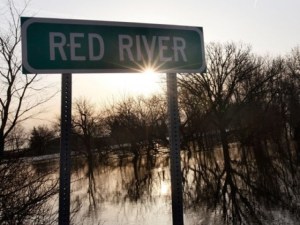Dorso Column: Look Forward, Not Back, To Solve Flooding Problems

Sad but true is the fact that almost every major city in North Dakota is on a river. Minot,Grand Forks, Fargo, Wahpeton, Bismarck, Mandan, Valley City and Jamestown to name a few. Think about that. Everyone of them has had floods and public money has or will be spent mitigating mother natures rights of spring.
I could go into a long list of why they are there but suffice it to say the choice was made long before our time. As these economic magnets grew from small villages to cities hundreds of millions was spent on infrastructure to sustain the business and residents who came there.
I tried with my renaissance zone legislation to encourage cities to grow within their borders. To some extent that has worked. On the other hand land adjacent to cities such as West Fargo becomes attractive because of its proximity to the economic and social centers.
I would love to say don’t build there go to the top of the hill but in the Red River Valley there is no hill. In fact with overland flooding such as Grand Forks experienced there is no safe alternative that is near the city.
Are city planners and developers to blame for what we have today? They should be but how do we deal with the citizens who purchased land to build business’ and residences the cities laid out?
I agree it is hard to wrap logic around the reality but as you watch the flooding through out the Midwest I am convinced that there aren’t easy answers. Ever since this nation decided flood control on the Missouri, Mississippi, Tennessee, or other river ways was in the publics interest we have been faced with the dilemma.
The issue surrounding Fargo diversion grew out of decisions made decades ago. The same must be said of all of the cities I have mentioned. Can we make today’s citizens of those cities pay a tremendous price for choices made a century ago and continued to date?
All of those communities are a part of North Dakota. They share a common heritage and all contribute to the states coffers by the economic activity within their borders. Whether it is flood, fire, blizzards or tornadoes we have a proud history of coming to the aid of our neighbors. To suggest that one city or county is not to be considered part of the whole is tragic.
Public policy makers at the state level should try to avoid parochialism. The state is better served when legislators consider the affects of their decisions on a statewide basis. Until policy makers can turn back the clock they are better served by joining together in making a better future for all North Dakotans.







